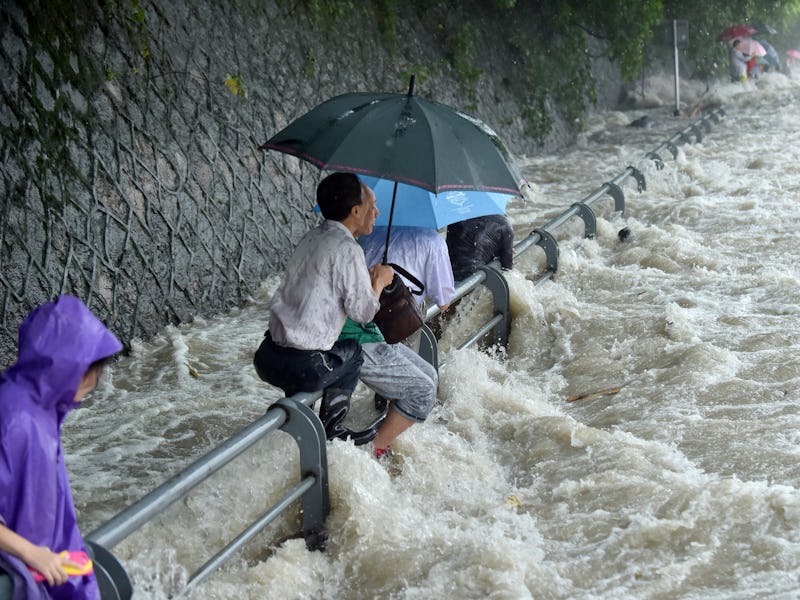Researchers Assess Huge Damage Costs From Rising Sea Levels
Study can predict how costly coastal flooding will be, but humans need to prepare for the consequences of rising sea levels.

The Potsdam Institute for Climate Impact Research (PIK) worked on a study that involved assessing the economic damage that will be caused by rising sea levels. As it turns out, before the Rockies become beachfront property, coastal regions will be affected with debilitating results — like flooding and other extreme weather conditions caused by climate change. But the measures humans take to mitigate these direct and early effects of a changing environment are extremely important in counteracting things like flood risks and how our coastlines actually recede.
The study, “Quantifying the effect of sea level rise and flood defense - a point process perspective on coastal flood damage,” was recently published in Natural Hazards and Earth System Sciences. Lead author Markus Boettle notes: “The complexity of climate change, adaptation, and flood damage can be disentangled by surprisingly simple mathematical functions to provide estimates of the average annual costs of sea level rise over a longer time period.”
So, basically, these folks helped you figure out what kind of flood insurance you should be getting ahead of Armageddon. Sea levels are definitely rising and it’s going to cost a mint before the icebergs are fully melted. The researchers have found a way to quantify monetary losses worldwide (with a focus on Mumbai, New York, and Hamburg, and the Pacific, Atlantic, and North Sea) from resulting coastal flooding. “For the first time, the scientists show that the damage costs consistently increase at a higher rate than the sea level rise itself,” notes the press release.
The importance of assessing the financial side of things is explained by co-author Diego Rybski: “Even when temperatures stabilize, sea levels will continue to rise and shape our coastlines for future generations. So, additional preventive measures need to be considered in addition to the mitigation of greenhouse gas emissions, to help coastal regions especially in transition and developing countries to adapt and to limit damage costs.”
And the bad news is, most of us reading this right now probably live in coastal regions. So get ready for some costly action before the waves come steal your beds.